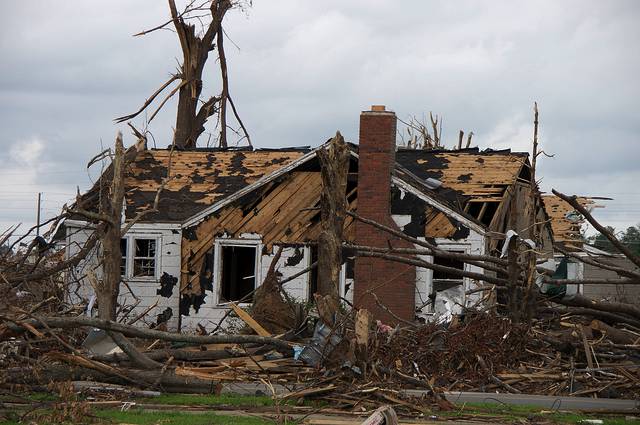While preparing quotes for home insurance, we often hear our customers say, “Should I insure my home at replacement value?”
Over the years, we’ve seen homeowners watch the market value of their homes decline after an economic downturn. However, this may not be a reason to panic, as the cost to replace a home may not have similarly declined. Replacing an existing home from ground up could end up costing more (even much more) than the market value of an existing home. This is because the cost of replacing a home has little to do with the market value of the previous structure – materials, labor and other expenses needed to replace a structure.
Replacement cost is the amount of money it would take to repair, replace or rebuild your home with materials similar to the kind and quality used in constructing your home. An important piece to replacement cost is that the replacement cost is used to determine your dwelling coverage amount; called Coverage A within your insurance policy. If your replacement cost, and therefore your dwelling coverage, are not calculated correctly, the result could mean you are underinsured and you might have to pay out of pocket on a large or total loss claims of your home.
Take this hypothetical scenario: A couple owned a 50-year-old home that was completely destroyed by a fire. The day before the fire, the house had a market value of $200,000 (down from $400,000 before an economic downturn), while the replacement cost remained steady at $300,000. The couple decided to rebuild their home from the ground up and learned the cost to do so would be $300,000.
In this hypothetical, if the couple insured their home at the replacement cost of $300,000, they would be sufficiently covered and could rebuild their house. Unfortunately, if the couple had insured their home at the market value of $200,000, they could be required to pay the additional $100,000 cost to build a new home out of pocket.
Thankfully, good home insurance agents understand this situation is anything from hypothetical and could adversely affect homeowners if they do not have the correct amount of coverage to replace a home. With that in mind, how exactly do home insurance companies determine what the proper home replacement coverage should be?
Home insurance companies determine anticipated home replacement costs based on many factors, including, but not limited to:
- the demolition and removal of debris, trees and other materials associated with the loss
- any costs associated with road access and off-site storage of materials and equipment
- the cost of new building materials
- the cost of skilled labor required to build a home
Many other likely and potential costs may be factored into home insurance companies’ home replacement cost estimates, but at this point you should be getting the picture by now.
The bottom line is this, market value does not necessarily represent the cost to rebuild a home, and may in fact be way off the actual mark especially depending on which market your home is in.
When you’re ready to shop around for home insurance, make sure that you properly address the issue of home replacement coverage, regardless of the current market value of your existing home.
